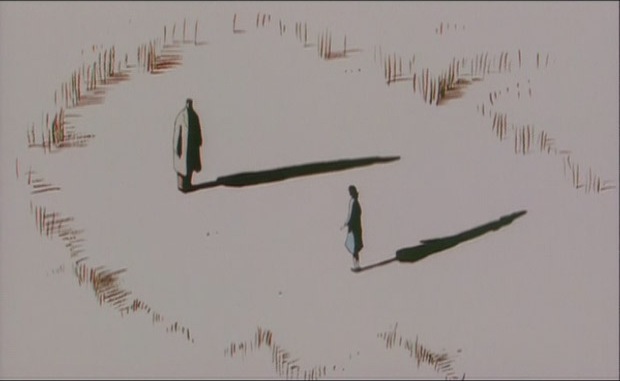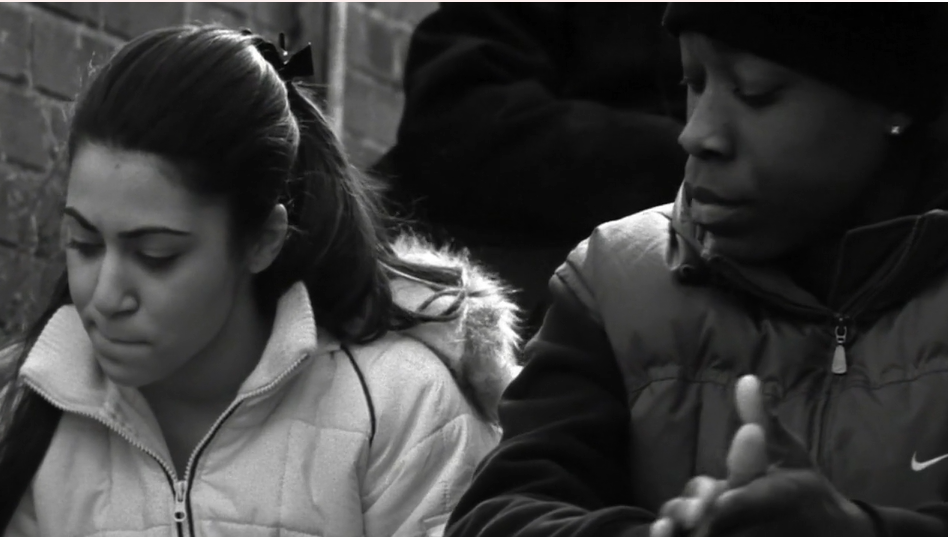Reading a Film Narrative
Reading a Film Narrative
To begin with, it can be useful to analyse the narrative of a film, following its development from the beginning to the end. Fictional films (and observational documentaries) usually focus on the desires, actions, challenges and obstacles facing one character. Investigative documentary films are often organised around a clear question explicitly stated in the title or opening narration.
Fiction film
Character: Who is the story about? Who are the main characters? How are they introduced to us? How do we discover what they want and what they fear? (N.B. Look out for the use of POV shots in establishing desire.)
Strengths and weaknesses: What are the main character's strengths and weaknesses (physical, mental and sociological)? How are these tested during the story? How do opponents attack their weaknesses?
Initiating events: What gets the story going? What are the initiating events in the character's story? (N.B. These may not be the same as the initiating events in the story world - e.g. the reasons a soldier goes to war may not be the same reasons that his country went to war.)
Suspense: Who do we sympathise with and why? Why do we pity them? Why do we fear for them?
Quest: What do the characters have to do to get what they want? What would happen if they failed?
Problems: Who or what stands in the main character's way? Why do they oppose the main character?

Stages of conflict: What are the main stages of the conflict? How does each stage challenge a different aspect of the character?
Reversals and revelations: What are the main reversals of fortune (from good to bad and vice versa) during the narrative? What revelations are there? How do these help propel the narrative forward?
Recognition: What are the key moments when the audience realises the character will need to make greater efforts to achieve their goals?
Self-recognition: Does the main character realise that he or she will need to change in order to defeat their opponent and achieve their goal? If so, when does this happen? (N.B. There may be more than one step to full realisation – if indeed it happens at all.)
Climax: What is the climactic moment of the film? How does this satisfy the big questions the audience has been asking?
Resolution: Is the conflict resolved in a surprising, interesting or engaging fashion? Are there questions left unanswered?
Aftermath: How has the world - or the character's world - been changed by the action and conflict?
Factual texts
Documentary is supposed to be truthful as well as informative. It is the reader’s job to distinguish between fact and opinion, detect any bias or polemic, and examine how the filming may have influenced what was filmed. (N.B. For character-based documentaries, you can use the same questions as for a fiction film.)
Argument: How do the filmmakers build and expand upon their initial arguments? Is it a dialectical approach (present a thesis - show conflicting views - try to resolve the differences)? If not, why not?
Narrative sequences: What are the different sequences? What different documentary techniques do/don't they employ? (E.g. ‘voice-of-God’ narration, continuity-style cuts or long tracking/panning shots that reveal the presence of the cameraman, presenter-led discussion, interviews, talking head interviews with illustrative cutaways or general views.)
Surprises: What are the main surprises and turning points in the narrative? How are these used to influence the argument and engage the audience emotionally and intellectually?
Authority: How do the filmmakers encourage the audience to trust in their ability to examine the argument fully? Do they use a well-known presenter/voice to lend credibility? Do they interview a range of experts whose names and titles appear on screen? Does it involve a particular broadcaster, producer or director with a reputation to preserve?
Truth: Have the filmmakers been even-handed and fair? Are there times when their shooting or editing techniques favour one side? If the film is deliberately one-sided and polemical, are the filmmakers upfront about this?
Interludes and re-enactments: Have drama documentary interludes or historical re-enactments been used to present an accurate portrayal of events? Have they been written or approved by historians? How much is really known about what exactly happened? Have the filmmakers ‘filled in the gaps’ anywhere?)
Statistics: Do the filmmakers explain their data-gathering and analytical techniques or expect you to take their methods at face value? If statistics are not explained, to what extent can the filmmakers be trusted? (Remember the words attributed to former British PM Benjamin Disraeli and popularised by the novelist Mark Twain, “There are three kinds of lies: lies, damned lies, and statistics.")
Presence: Could the presence of the camera/presenter or the technical requirements of filming could have changed the nature of the events being filmed? What ultimate impact could this have had on the final film?
